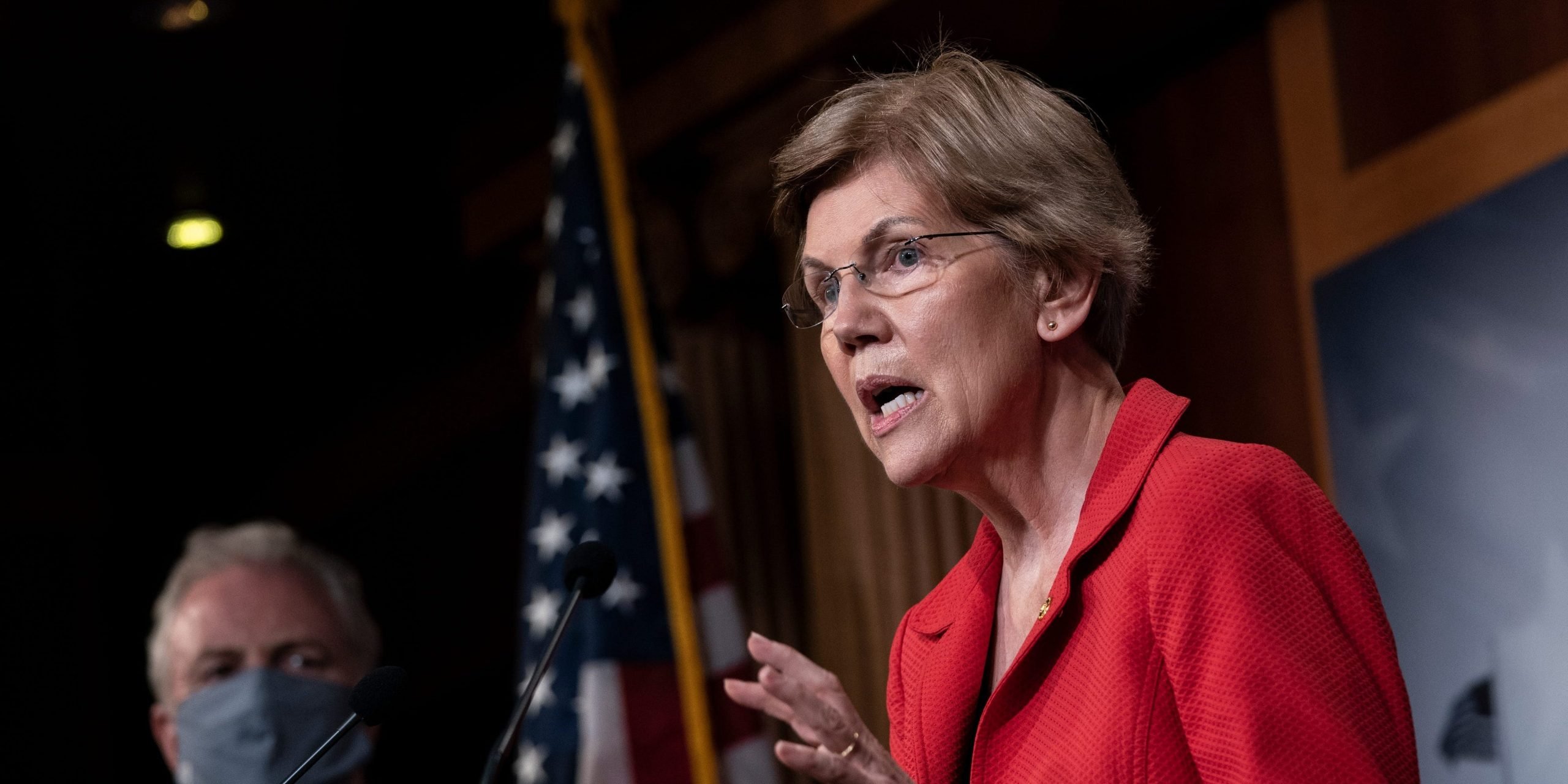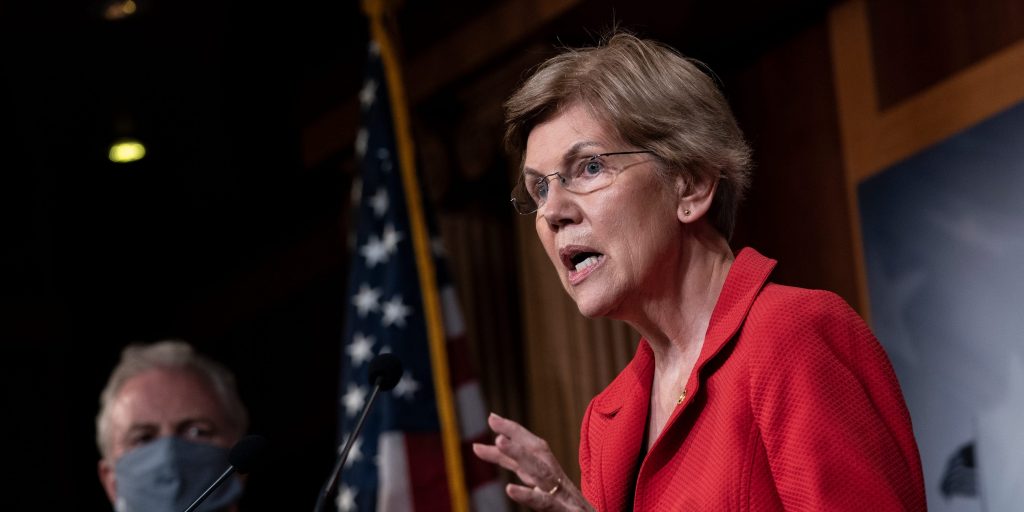
- Elizabeth Warren asked student-loan servicers last month how they were preparing borrowers to restart payments.
- They responded on Tuesday that they need more time, calling the transition into repayment "unprecedented."
- Lawmakers and advocates are calling on Biden to extend the payment freeze through next year.
- See more stories on Insider's business page.
The resumption of student-loan payments on October 1 is quickly approaching as borrowers, lawmakers, and advocates continue to sound the alarm on the risks with restarting payments too early.
As it turns out, the companies that collect the payments aren't ready, either.
Last month, Sens. Elizabeth Warren of Massachusetts, Ed Markey of Massachusetts, and Tina Smith of Minnesota sent a letter to the CEOs of all student-loan servicers, requesting information on how each of them were preparing to transition borrowers back into repayment.
On Tuesday, the senators released the responses from those servicers, and the overarching theme was that servicers, along with borrowers, have concerns with restarting student-debt payments in just three months.
"The responses to our inquiry indicate that neither student loan borrowers nor student loan servicers are prepared for payments to resume, and servicers will need significant time to ensure that staffing and procedures are ready to provide borrowers with a high level of support," the senators wrote in a letter to President Joe Biden.
One servicer even noted in its response that attempting to move over 43 million borrowers back into repayment at once is "unprecedented."
Other main findings from the responses include:
- The payment pause has provided significant relief to borrowers, with 2.5 million borrowers having fully repaid their loans during the pandemic;
- Most borrowers had very little contact with their servicers during the pandemic, suggesting they will not be adequately prepared to restart payments;
- Servicers need more time to ensure staffing is sufficient to support borrowers;
- And transitioning borrowers from FedLoan Servicing, which recently announced it is not extending its contract, will require additional time to ensure borrowers are not harmed in the process.
Last week, the Pennsylvania Higher Education Assistance Agency (PHEAA) notified the Education Department that it would not extend its 12-year-old contract for FedLoan Servicing - which handles the loans of 8.5 million borrowers - beyond December 14. The senators wrote in their letter that attempting to restart payments only weeks after transferring servicers would "overwhelm an already broken student loan system."
The fight to extend the payment pause continues to grow. On June 21, 64 Democrats, led by Senate Majority Leader Chuck Schumer and Warren, urged Biden in a letter to extend the payment pause until March 31, 2022, or until the economy returns to pre-pandemic employment levels, whichever is longer.
A few days later, 128 organizations, including the American Civil Liberties Union (ACLU) and Service Employees International Union (SEIU), sent a letter to the president, urging him to extend the payment pause until the administration has followed through on its promises to fix the student-loan system and cancel federal student debt.
And on June 30, Patty Murray and Bobby Scott, chairs of the Senate and House Education Committees, respectively, sent a letter to Biden urging him to extend the payment pause until early 2022 to ensure borrowers have the information they need to restart payments.
Education Department officials have also reportedly urged Biden to extend the payment pause, and while Education Secretary Miguel Cardona has not confirmed or denied whether such an extension will happen, he has hinted at the possibility of doing so.
"As the economy recovers from this unprecedented crisis, borrowers should not be faced with an administrative and financial catastrophe just as they are beginning to regain their footing," the senators wrote. "We strongly urge you to extend the pause on student loan interest and payments in order to allow time to begin to repair the broken student loan system."
